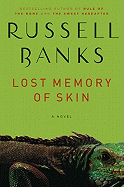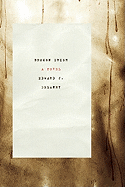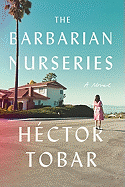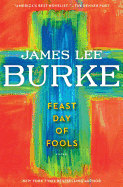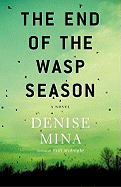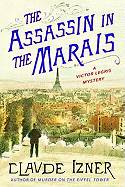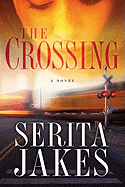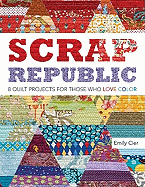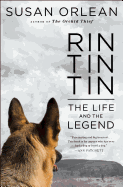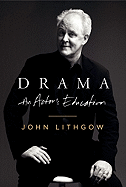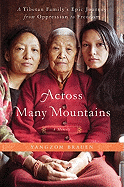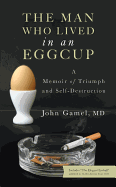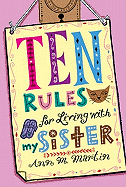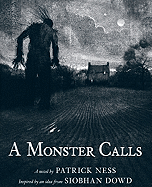Maester Martin's Milestones
The past week was another big week for a publishing phenomenon that has taken a few Shelf Awareness editors--and millions of others--on an epic reading journey. First, at the Emmys, Peter Dinklage won best supporting actor in a drama series for his portrayal of Tyrion Lannister in HBO's series based on A Game of Thrones, the first volume of George R.R. Martin's A Song of Ice and Fire saga. Dinklage's Tyrion, aka the Imp and the Dwarf, is one of the best-read characters in the books, saying at one point, "A mind needs books as a sword needs a whetstone, if it is to keep its edge." (Tyrion is also delightfully droll, sharp-eyed, humorous, fatalistic and hedonistic.)
First, at the Emmys, Peter Dinklage won best supporting actor in a drama series for his portrayal of Tyrion Lannister in HBO's series based on A Game of Thrones, the first volume of George R.R. Martin's A Song of Ice and Fire saga. Dinklage's Tyrion, aka the Imp and the Dwarf, is one of the best-read characters in the books, saying at one point, "A mind needs books as a sword needs a whetstone, if it is to keep its edge." (Tyrion is also delightfully droll, sharp-eyed, humorous, fatalistic and hedonistic.)
Then last week publisher Bantam announced that A Game of Thrones has sold one million copies in the past six months, roughly since the HBO series began and drew in many new fans. Next, Amazon said that Martin is the 11th author to sell a million e-books in the Kindle Store. And A Dance of Dragons, the fifth volume in the series, released in July after a long wait, continues to burn up the bestseller lists. Altogether the series has 11.8 million copies in book, e-book and audio versions in print.
Based loosely on the War of the Roses, A Song of Ice and Fire is a sprawling tale set in a world like medieval Europe and Asia and features complex flesh-and-blood characters, few of whom are pure good or evil. The material is simultaneously earthy and mystical. And Martin is an expert in moving the story along--with twists that shock the reader.
One college-age friend called A Song of Ice and Fire "medieval porn." Another described Martin as "America's Tolkien." Again and again, we've encountered fans who say with a bit of surprise that they never read fantasy but somehow have gotten hooked on Martin's universe.
This phenomenon will only get bigger--the second season of the HBO series is filming and there are at least two more volumes to look forward to. We dare you to join the legions and drink some of Martin's literary dreamwine.
Happy reading! --John Mutter




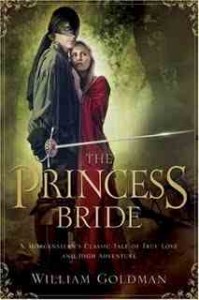 An imaginary Monopoly game crafted in honor of the 24th anniversary of the film adaptation of William Goldman's novel
An imaginary Monopoly game crafted in honor of the 24th anniversary of the film adaptation of William Goldman's novel 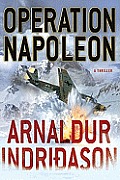 If you're a fan of the Scandinavian mysteries that have been growing in popularity lately, you may want to check out a new thriller, Operation Napoleon by Arnaldur Indridason (Minotaur), with a plot that has roots in World War II but takes place in modern-day Iceland.
If you're a fan of the Scandinavian mysteries that have been growing in popularity lately, you may want to check out a new thriller, Operation Napoleon by Arnaldur Indridason (Minotaur), with a plot that has roots in World War II but takes place in modern-day Iceland.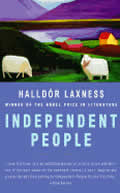 For writing the extraordinary Independent People, Halldor Laxness won the 1955 Nobel Prize for Literature. Laxness wrote a sort of Jane Austen-like gem that demonstrates that any interaction between human beings can illuminate something of the human condition. Instead of the English middle- and upper-middle classes, Laxness's turf is Icelandic sheep farmers, specifically one Bjartur of Summerhouses, who wishes for nothing more and nothing less than to own his own flock.
For writing the extraordinary Independent People, Halldor Laxness won the 1955 Nobel Prize for Literature. Laxness wrote a sort of Jane Austen-like gem that demonstrates that any interaction between human beings can illuminate something of the human condition. Instead of the English middle- and upper-middle classes, Laxness's turf is Icelandic sheep farmers, specifically one Bjartur of Summerhouses, who wishes for nothing more and nothing less than to own his own flock.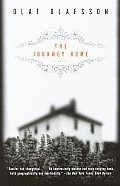 While Olaf Olafsson is writing decades later than Laxness (in fact, the novelist and TimeWarner senior executive wasn't born until 1962), his literary concerns are often based on his nation's past. In The Journey Home, Olafsson's narrator Disa has crafted a good, quiet life in London--but her World War II experiences, as well as her Icelandic past, threaten to overwhelm the façade she's protectively constructed in the present.
While Olaf Olafsson is writing decades later than Laxness (in fact, the novelist and TimeWarner senior executive wasn't born until 1962), his literary concerns are often based on his nation's past. In The Journey Home, Olafsson's narrator Disa has crafted a good, quiet life in London--but her World War II experiences, as well as her Icelandic past, threaten to overwhelm the façade she's protectively constructed in the present.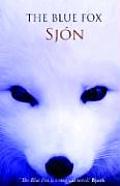 Sjón, who may be best known for writing some of his countrywoman Bjork's lyrics, is the same age as Olafsson--but writes as if he were born in a different universe. His works include novels, short stories, children's books and poetry, as well as song lyrics and film scores. His novel The Blue Fox is set in late 19th-century Iceland and touches on elements of nature, myth, magic, religion, difference--all in just 112 pages. --
Sjón, who may be best known for writing some of his countrywoman Bjork's lyrics, is the same age as Olafsson--but writes as if he were born in a different universe. His works include novels, short stories, children's books and poetry, as well as song lyrics and film scores. His novel The Blue Fox is set in late 19th-century Iceland and touches on elements of nature, myth, magic, religion, difference--all in just 112 pages. -- "From The Bell Jar to Moneyball, from Gore Vidal to Tom Wolfe, countless books and authors have guest-starred on America's longest-running sitcom," the Atlantic's Jared Keller wrote to introduce his "
"From The Bell Jar to Moneyball, from Gore Vidal to Tom Wolfe, countless books and authors have guest-starred on America's longest-running sitcom," the Atlantic's Jared Keller wrote to introduce his "